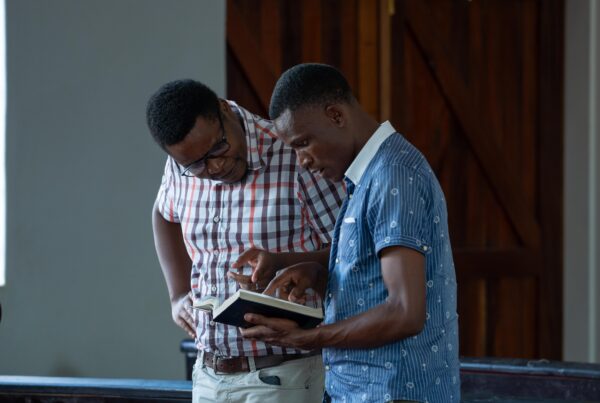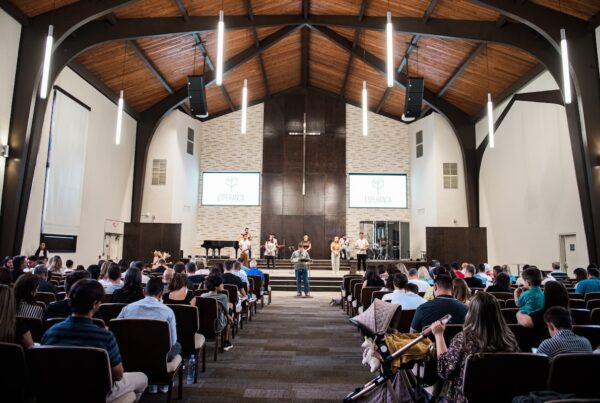In his excellent book, The Imperfect Pastor, Zack Eswine highlights the need for those in pastoral ministry to remember our humanity and to find joy in our limitations. However, we often kid ourselves into thinking we’re omnipresent and seek to relate to everyone everywhere, or we think we’re omnipotent and seek to fix all the problems. Maybe we think we’re omniscient, giving the impression we know everything.
Of course, we are none of these things—they’re characteristics attributed to God alone. But often, we forget our humanity and try to do too much—leaving ourselves burned out, frustrated, and exhausted. If you’ve found yourself here, I encourage you to consider going on a retreat. As busy pastors and church planters, we’re accustomed to constant activity and may find it difficult to slow down. But I’m convinced life-long, fruitful ministry is marked by rhythms of retreat and soul-care. Sometimes the best, most godly thing you can do is to rest. Click To Tweet
Recently, I’ve been reflecting on how God honors Elijah’s humanity in 1 Kings 19. After Elijah experiences God’s extraordinary power in 1 Kings 18:22–39, he’s threatened by Jezebel and runs for his life. God meets him in the wilderness and cares for him through his distress.
Here are four takeaways from Elijah’s story to help shape our soul-care rhythms.
1. Pastor, you are a physical being.
How well do you take care of your body? As Elijah heads to the wilderness in 1 Kings 19:5–7, the Lord (as he always does) kindly provides what is needed. At this point, Elijah’s needs are very basic—he sleeps and eats. Nourishment and a nap. Sometimes the best, most godly thing you can do is to rest.
The 19th century minister Robert Murray McCheyne famously said, “God gave me a message to deliver and a horse to ride. Alas, I have killed the horse and now I cannot deliver the message.” His hard work didn’t make him better or more productive, it short-circuited his ministry.
2. Pastor, you are an emotional being.
I love the way God deals with Elijah on the mountain. We’ve already seen his kindness tending to his physical needs, but did you notice God’s patience with Elijah? Elijah vents to God; he’s poured himself out in service to the Lord, but what does he have to show for it? Rather than respond in kind, God listens. He gives Elijah the space to express himself and then, gently answers.
You may find it difficult to express honest emotions to God, but the Bible is full of resources to help. The Psalms are a great example. As Athanasius puts it, “all Scripture speaks to us, whereas the Psalms speak for us.” We have words from God to speak to God. He knows our emotions and can handle them, as we see clearly displayed in Elijah’s story.
3. Pastor, you are a relational being.
One of Elijah’s frustrations is that he feels alone. In 1 Kings 19:10, he tells God that the Israelites “have forsaken your covenant, thrown down your altars, and killed your prophets with the sword, and I, even I only, am left, and they seek my life, to take it away.” Many planters I speak to feel distanced and lonely. Some are starting new churches in unreached territories where isolation is natural, and others are just too busy (or perhaps too guarded) to form friendships. Taking time and space to slow down, pause, pray, reflect, listen, consider, and repent in an unhurried and guilt-free way can be transformative. Click To Tweet
God doesn’t call us to live the Christian life on our own. The Epistles are full of lists of co-laborers—real people—who ministered alongside Paul and others. Although Elijah felt alone, the Lord assured him that he wasn’t.
4. Pastor, you are a spiritual being.
As Christians, God’s presence is our greatest blessing and need. In Elijah’s story, we’ve seen God’s kindness in providing physically, emotionally, and relationally, but the main event is found in 1 Kings 19:9–18 when God speaks directly to Elijah. He draws near to the brokenhearted prophet. Hearing the voice of God sends Elijah back on mission, equipped and rejuvenated, ready for what lies ahead.
Taking time and space to slow down, pause, pray, reflect, listen, consider, and repent in an unhurried and guilt-free way can be transformative. It ought to be a discipline we build into our daily, monthly, and yearly rhythms of life.
Being honest about our humanity and prioritizing retreat is, in one sense, a sign of weakness. But in God’s kingdom, that is a good thing, for it’s in our weakness that he is made strong.










